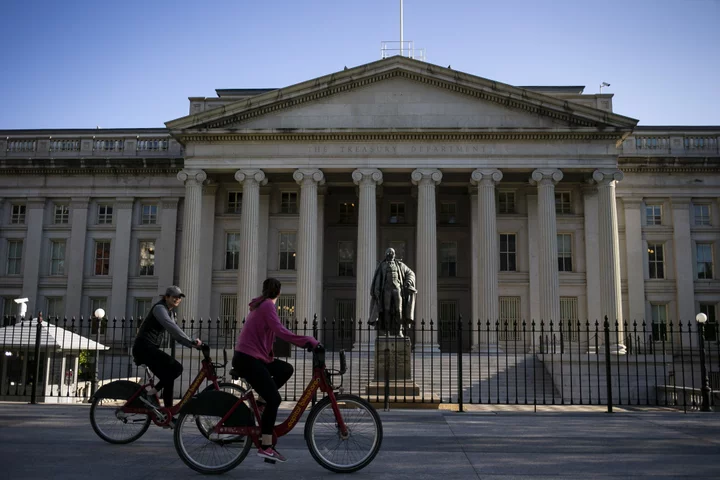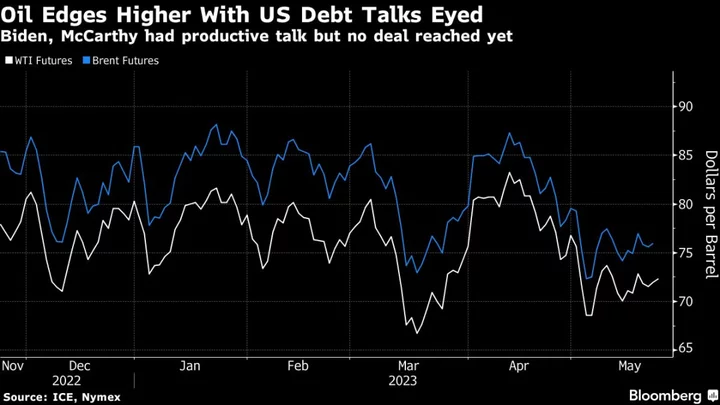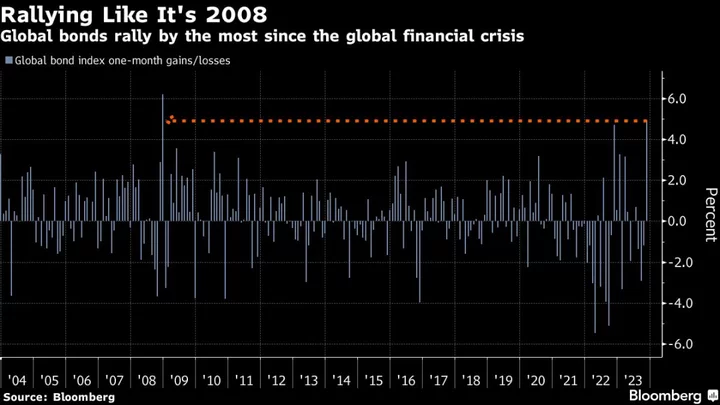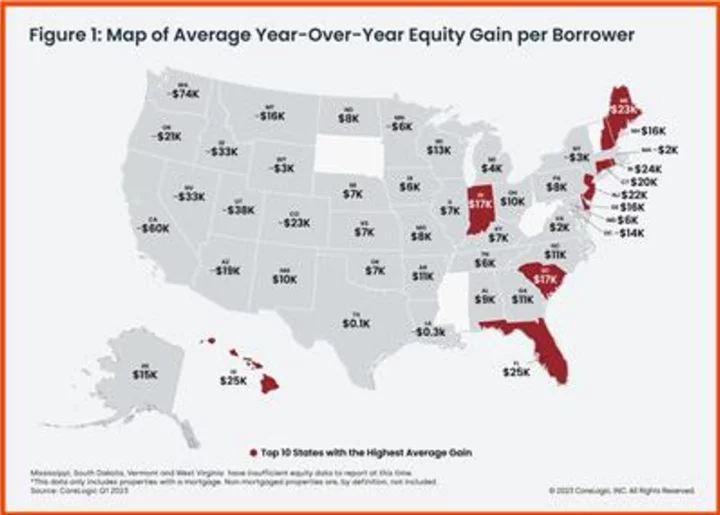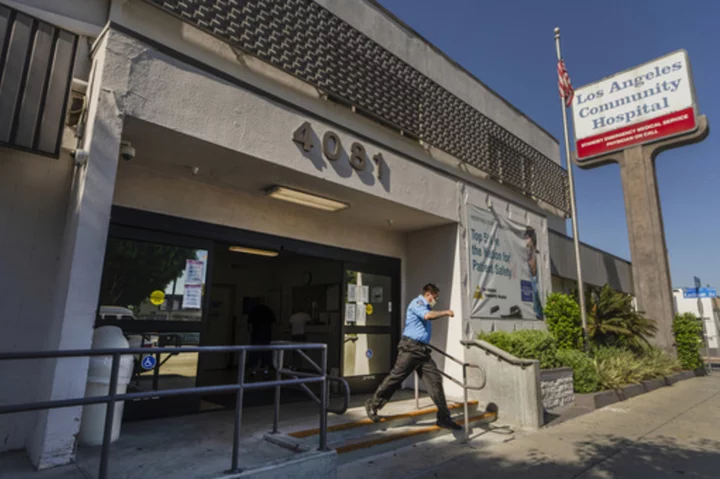A normal day for markets became something extraordinary after a hotly anticipated report on US inflation gave traders the greenlight to declare that the Federal Reserve’s most aggressive interest-rate hiking cycle in decades is over.
Yields on rate-sensitive two-year notes slumped as much as 23 basis points to 4.81%, as investors marked down the odds of another rate increase to almost nil. Meanwhile, the benchmark 10-year rate slid about 19 basis points to 4.45%, and traders boosted their bets on the Fed slashing rates next year to price in more than half a percentage point of cuts by July.
Traders in the options market went one step further: piling into wagers that stand to benefit from cuts as soon as March.
“There’s been a sea change in investors’ perceptions of where the Fed is headed with policy,” said Chris Ahrens, a strategist at Stifel Nicolaus & Co. “Not only do they see the Fed as done, but they are pricing in two cuts by the middle of next year.”
The huge rally in Treasuries — which saw some of the biggest daily moves since March’s banking crisis — marks a sharp u-turn from less than a month ago when 10-year yields surpassed 5% for the first time since 2007. While the recovery has been choppy, the bond market recovery has gained ground since the Fed left its benchmark policy rate unchanged earlier this month.
That, and the improving inflationary outlook, is prompting a shake out on Wall Street and beyond. Cathie Wood, the head of ARK Investment Management, told Bloomberg TV Tuesday that deflation is already underway in the US across industries. Meanwhile Bank of America economists are no longer expecting the Federal Reserve to raise interest rates again.
Yet some are already cautioning that the central-bank risks denting its reputation if it moves toward cuts too quickly. Citadel founder Ken Griffin said Tuesday that US central bankers “risk losing credibility around their commitment to a 2% inflation target” if they cut too soon.
Swap contracts used to hedge future Fed actions see the US central bank slashing rates by a full percentage point by the end of next year. Yet inflation is still above the Fed’s target.
Inflation Print
The US consumer price index was unchanged in October versus a median estimate of a 0.1% increase in Bloomberg’s survey of economists. Core CPI, which excludes food and energy, increased 0.2% compared with the 0.3% median estimate. The year-on-year rate slowed to 4% against an estimate of 4.1%.
“I still think that inflation will take time to come down and that will leave the Fed on hold longer than you typically see during a cycle,” Erin Browne, the portfolio manager for multi-asset strategies at Pacific Investment Management Co., said on Bloomberg television. “The Fed is not going to take it’s applause and take a bow with just one data print,” and will wait “to make sure that the data continues to confirm that inflation will fall.”
Overall, Pimco is bullish on bonds, sticking with a 2024 forecast they and others had for this year that didn’t pan out.
Read more: Pimco Renews a Bullish Bond Forecast That Crumbled This Year
Hope is building now that with the fall in yields in recent weeks, bond investors could avoid what looked like a sure thing just a few months ago — a third straight year of losses in Treasuries. A broad index of Treasuries was down 1.2% this year through Monday, after losing an unprecedented 12.5% last year and 2.3% in 2021.
“The bar for further rate hikes is getting higher and higher at this point,” Jay Bryson, Wells Fargo & Co. chief economist, said on Bloomberg Television.
(Adds strategists’ comments in fourth and seventh paragraphs, updates yields.)

